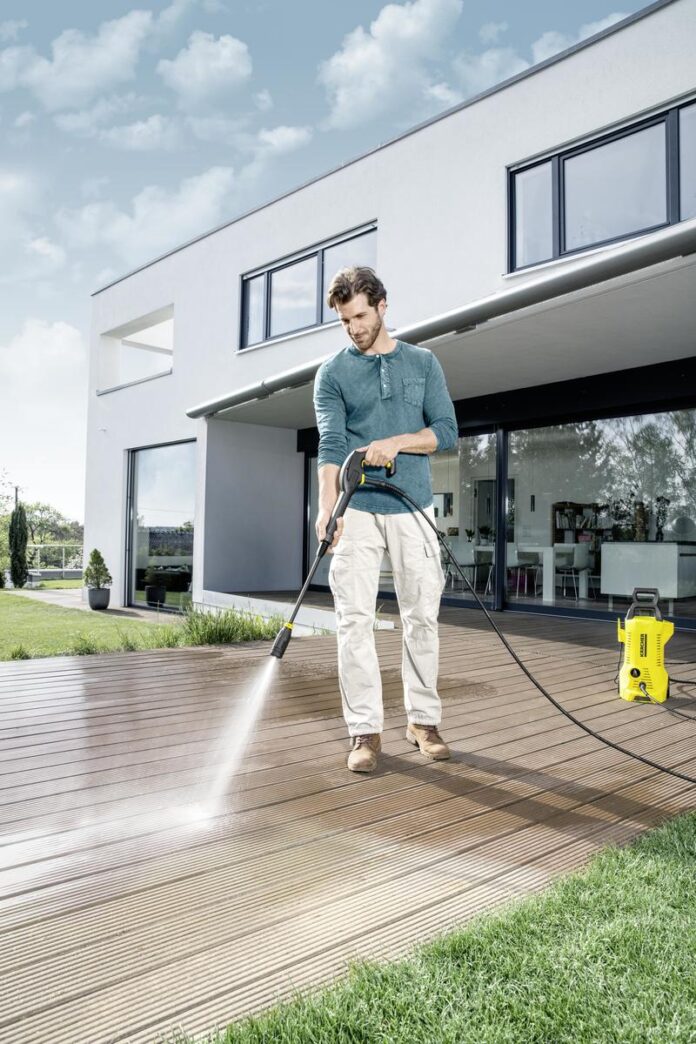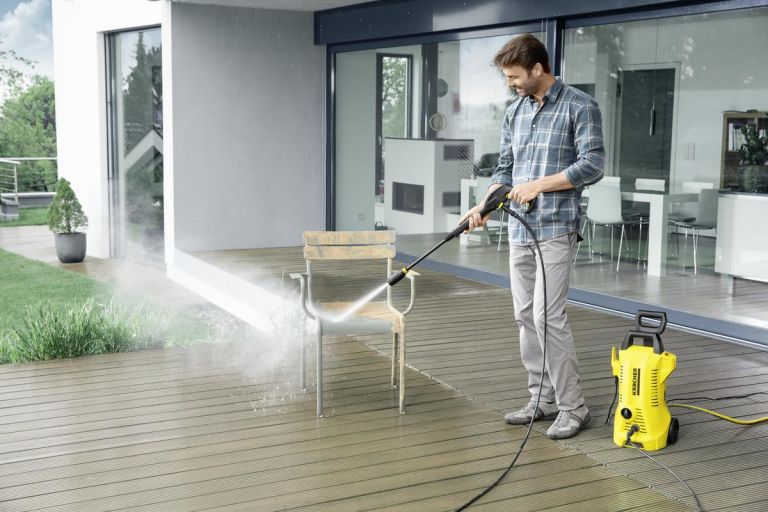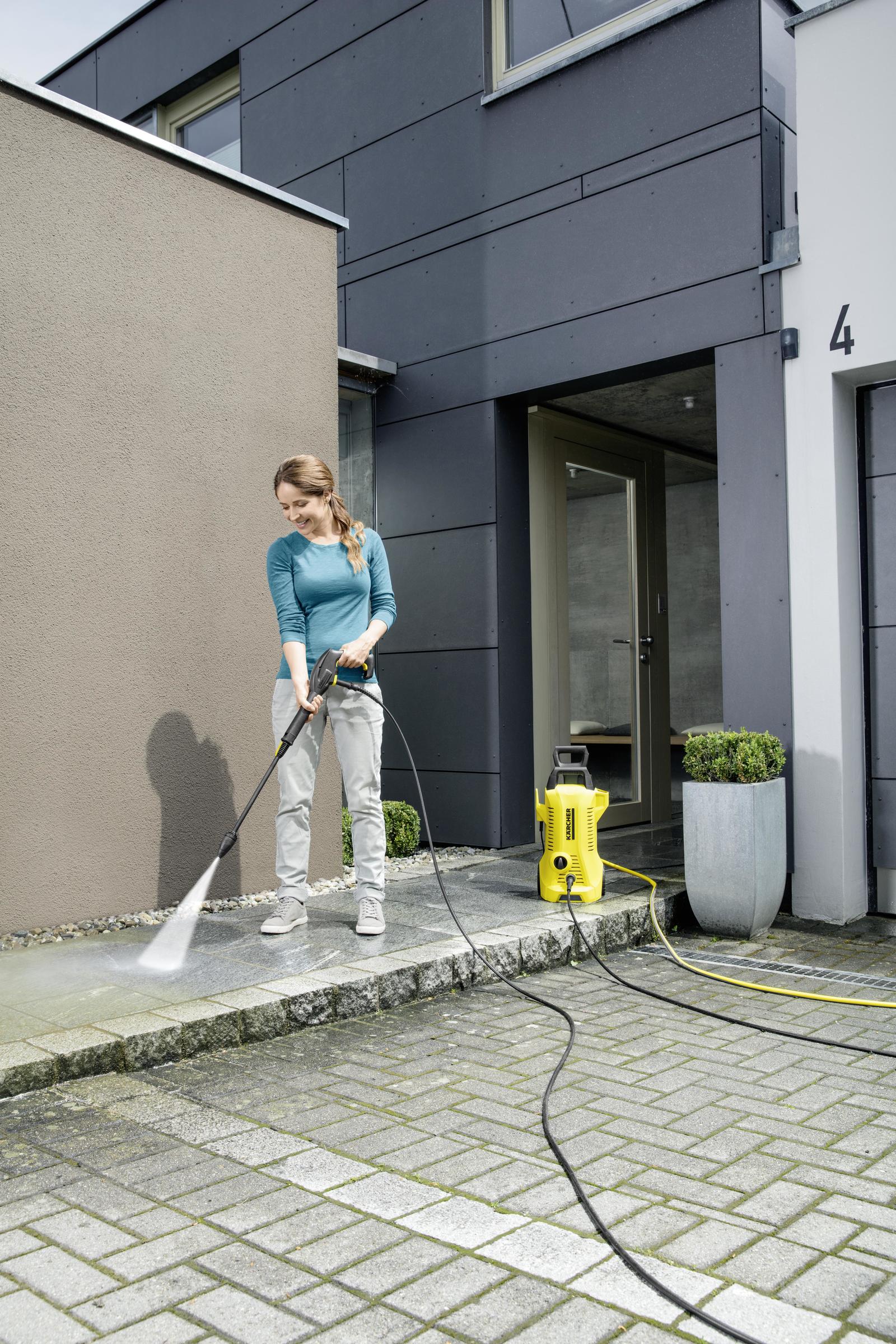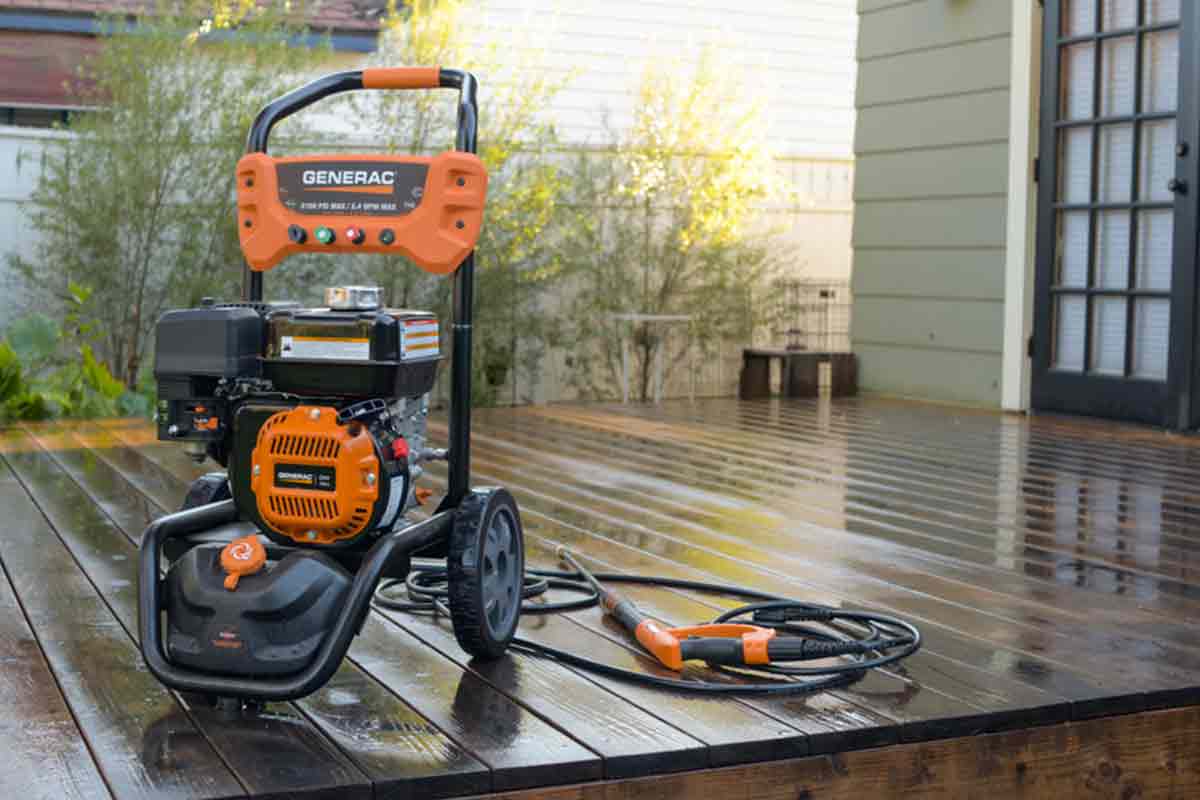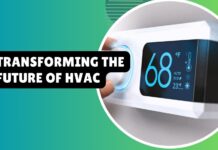Homeowners who prefer to do their own yard work and routine maintenance often question if a gas or electric pressure washer is best. Some people prefer gas over electric because of the assumption that the gas version is more powerful. Sometimes, that is the case, but it depends on what you are comparing it to.
When choosing a pressure washer, the first specification is the output pressure or PSI, and the water flow or GPM. A lot depends on what you are planning to do, and for how long. Also, as you increase or decrease the PSI output, the price fluctuates accordingly.
Gas or Electric?
Choosing between the two gets confusing. After you read this, I think you may have a decision that works best for everyone involved. Price alone cannot be the deciding factor because the two types come with pretty cool attachments that make the work more manageable, and yes, more fun!
That said, before buying a new pressure washer, remember that having the washer opens up more uses that you may not have considered. Windows (especially upstairs), siding, gutters, driveways, sidewalks, shingled roofs, and the list goes on.
When it’s time to wash the car, you won’t have to worry about fitting it into your schedule, because it’s a breeze with a power washer. Power washers enjoy a huge demand, especially in the spring and summer months.
Consumer available pressure washers are both electric and gas-powered. Electric versions cost less than gas models and require less maintenance. But, the tradeoff is power. An underpowered unit won’t have enough power to clean hard or built-up surfaces.
While the smaller electric unit produces about 1300-1700 PSI, which is nothing to sneeze at, the water flow lacks. These units typically range in the 1.5 GPM water flow. Keep in mind if you have a tough job ahead of you, consider a 2000 or 3000 PSI unit with a water flow of about 2.5 GPM.
Maintenance Tasks
A gas model needs regular maintenance, including oil changes, spark plugs, and wires, to name a few. A gas model can get very powerful, so make sure you need this extra power.
Both electrical and gas units require maintenance at some point. Let’s take a look at both. Using a pressure washer around the home comes in handy and is the best tool for several house projects.
Regardless of type, either one has their good things and not-so-good things. One is that electric units can get powerful – over 2000 PSI. They’re great for cleaning the car, the grill, the porch, by the pool. With the attachments, you can expand their use, too.
More people prefer electric units because they are very low maintenance. You buy them once, and there’s no worry about owing money on them. One of the drawbacks is that electrics are often cheaper to buy, and it shows in their quality.
Electric pressure washers won’t last more than a few years under normal conditions, but when you consider the unit’s low price, replacing it isn’t a problem.
Limitations with Both
The electric unit is only as versatile as the length of the power cord. It’s not safe to use an extension cord, so your only choice is to either find one with an extra-long power cord or pay extra to have an electrical outlet installed outside in a more convenient place.
More people choose electric units because they do the job nicely and won’t break the bank. A gas-powered unit offers the freedom and flexibility to use it anywhere on your property. They are heavy to move, but they have wheels on them that help with mobility. The only real issue with them is they do require oil changes and tune-ups. Keeping up on the maintenance helps the unit last many years.
So, Which Type is the Best?
A gas-powered washer is excellent to use, but people tend to use the electric washer because it’s easy to operate. The gas-powered unit seems to get relegated somewhere in the garage and not used until a big job requires power.
That said, it sounds like the choice for an electric power washer makes the most sense, both in cost and use. Electrics are versatile and always do a great job with about any job around the house. They’re powerful enough and easy to operate safely.

